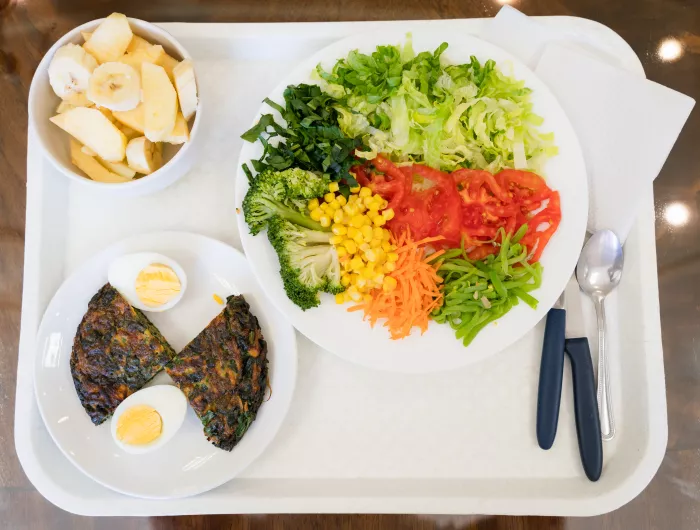Incarcerated people deserve healthy meals and a balanced diet

JosuOzkaritz - istockphoto.com.
Guest blog from Radee Hammett, founder of The Reawakening Agency
Incarceration is where many individuals are forced to reform. But how can we better ourselves without basic choices about what we put into our bodies?
I’m seven years removed from the State Correctional, but I can remember like it was yesterday how I dreaded going to the chow hall. I would brace for the worst but remain hopeful that what was on the menu would satisfy my hunger.
And the same questions would always arise in my mind, as well as other inmates’: Is the food I’m eating helping or hurting me?
There are negative impacts and stigma that go hand in hand with the incarcerated population and the food we consume on a daily basis. I can tell you firsthand that there is absolutely no consideration for what should or should not be given to us.
The typical prison diet, which is high in salt, sugar, and refined carbohydrates, contributes to the elevated rates of diabetes and heart disease among the incarcerated population. A typical meal for me while I was incarcerated was a piece of meat, bread, potatoes, beans, milk and in rare instances, a piece of fruit. For me personally, I couldn’t eat the meats that were served because many meat dishes were cut with edible soy products.
This is why, when I returned to society, I created my own non-profit organization called The Reawakening Agency. Personally, having the same lived experiences as the people my organization serves makes me a credible messenger and motivates me to show up for them every day.
We provide the men and women who are returning after serving their time in state correctional institutions with care packages, clothing, and other resources. Notably, we also have a partnership with a local food pantry that donates the organic and vegan food products that we serve our members when they attend our life skills workshops. We deem it very important and necessary to help them change their eating habits once they transition back into society.
While many of our members come from different state correctional institutions, the one common denominator stays the same: Prison food is not the best food, but when you don’t have a choice or a voice in the matter, then you have to settle.
Radee Hammett is the founder of The Reawakening Agency, a nonprofit organization based in Philadelphia that helps men and women who are transitioning back into society reach their full potential. Before devoting his work full time to The Reawakening Agency, Radee served as a mentor for the Pennsylvania Prison Society, a CSPI partner organization, and serves on the Prison Society Community Advisory Board. In addition, Radee serves as the Community Liaison for The Mann Up Association.

